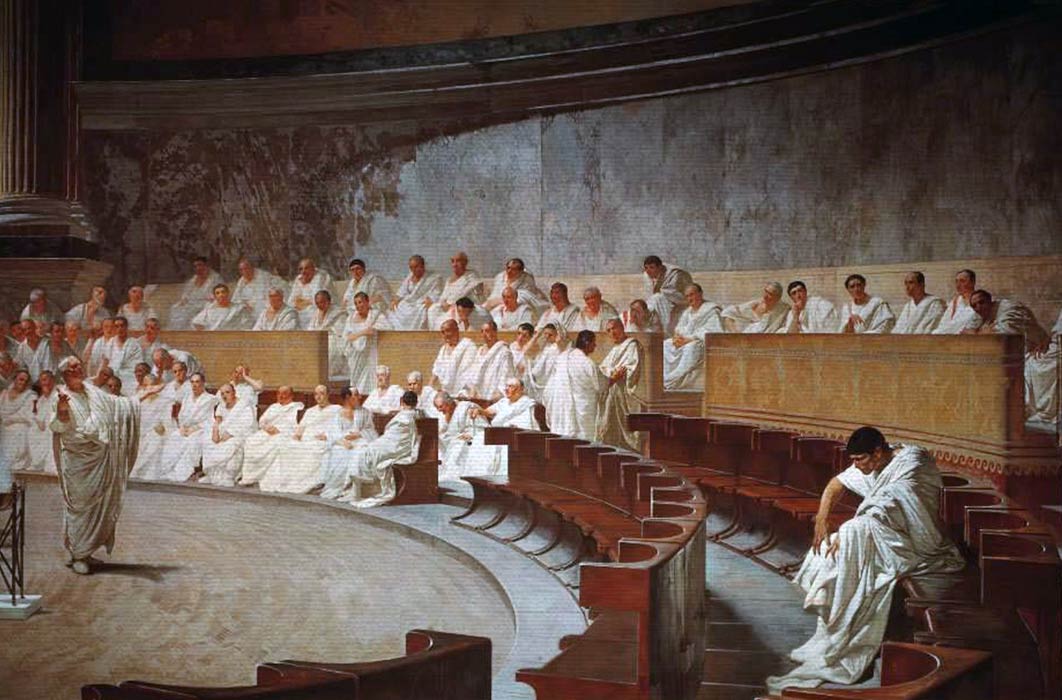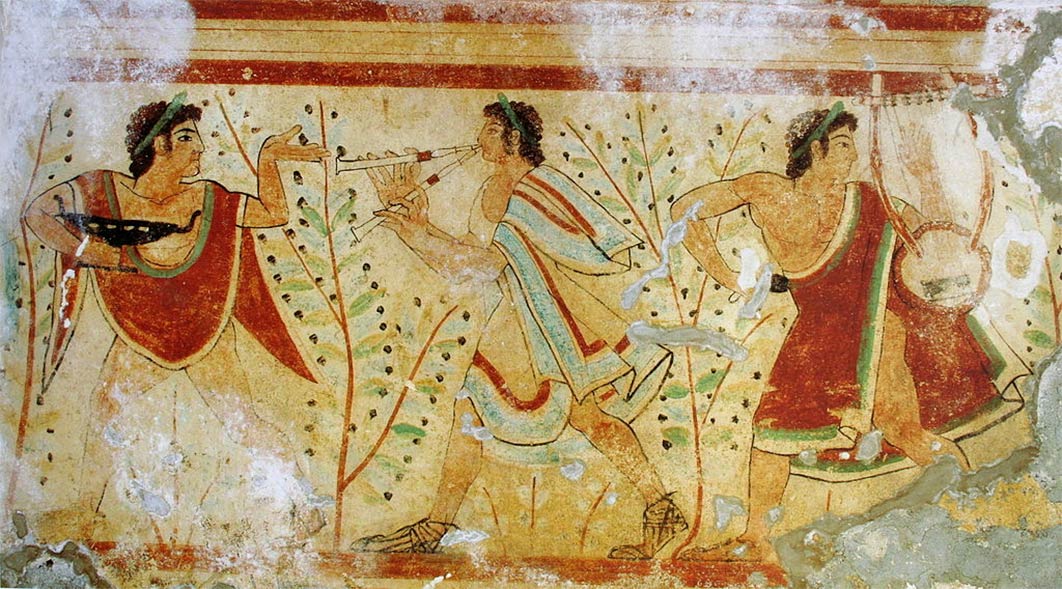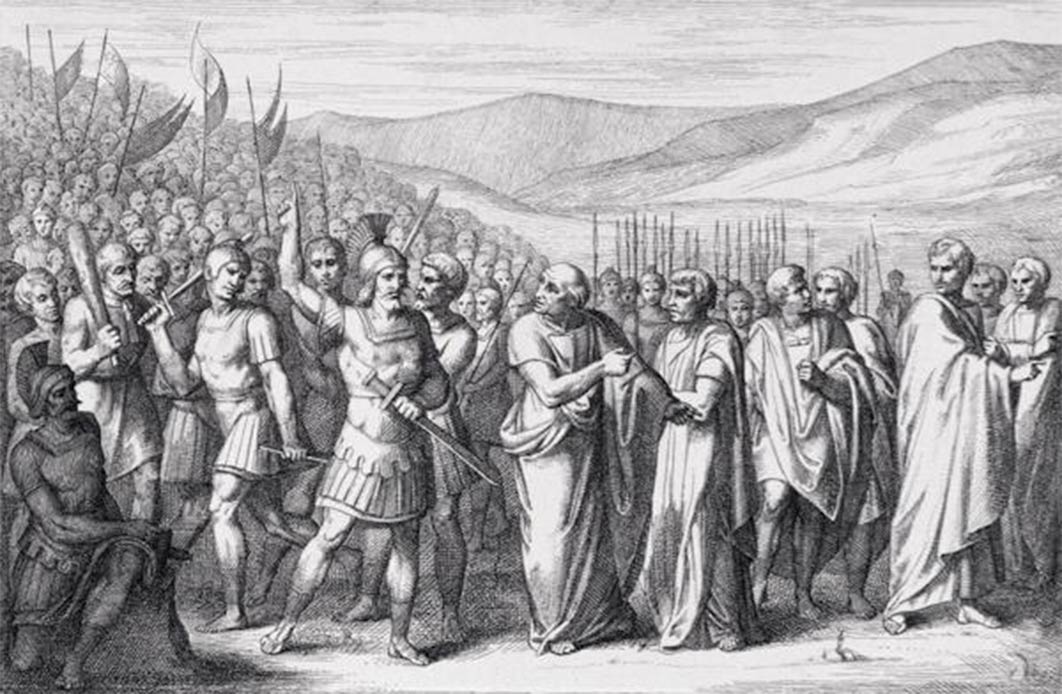
Roman Elections: The Rise and Fall Of Eccentric Roman Politicians
In the ancient world, the early distribution of political power was dictated by the availability of fresh water, fertile soil and a temperate climate, all of which were important for the development of organized societies. This greatly clarified the object of politics at the time which was to define boundaries. Ancient Egypt and Mesopotamia were able to equip their large rivers with irrigation systems that allowed higher agricultural productivity and thus sustained surpluses and population growth. The Mesopotamians even innovated the first laws.

Etruscan painting; dancer and musicians, Tomb of the Leopards, Tarquinia, Italy (Public Domain)
Later, the Greeks began to colonize the Mediterranean region. This facilitated trade, which then caused a shift in the politics of the city-states. In Italy, the Etruscans wielded the most influence until Rome developed into one of the largest cities of the region by the end of the sixth century. Rome’s evolution from a minor power into an imperial behemoth complicated the concept of politics even further. The structure of the early Roman Republic was a hybrid between the Athenian style direct democracy, the Spartan style oligarchy, and the Etruscan style monarchy. This system seemed to be complicated by design to prevent any single entity from gaining too much power.
Politics And Ancient Roman Life
The ancient Roman senate was established in the first days of the city of Rome which was traditionally founded in 753 BC. It was first created as a 100-member advisory committee for the Roman kings. When the Republic was established, the senate became the most powerful governing institution. By the third century BC, influential senators were powerful enough to send troops and negotiate terms of treaties. They also had absolute influence over the Republic's financial matters.
The ancient Roman tradition strictly distinguished the patricians (the old hereditary elites of Rome) from the plebeians (everyone else). Although the patricians were not necessarily wealthier than the wealthiest of the plebeians, they belonged to noble families and reserved most of the main offices in government.
The two consuls who ruled the Roman Republic, by occupying the highest posts in the government, were elected by the senate which consisted of patricians. Therefore, at least in the early days of the Roman Republic, the plebeians had virtually no say in the government despite still being allowed to vote.

The Secession of the People to the Mons Sacer, engraved by B. Barloccini, (1849) (Public Domain)
The Tribune Of The Plebeians
All this changed with the formation of the Tribune of the Plebeians in 493 BC. The Tribune of the Plebeians formed as a result of a conflict between the plebeians and the patricians that nearly tore the early Republic apart. It was designed as a compromise to give commoners a presence in the government. The only way to be elected to the Tribune was to be a plebeian. Two to five plebians were given seats at any one time before this number was increased to ten in 457 BC.





